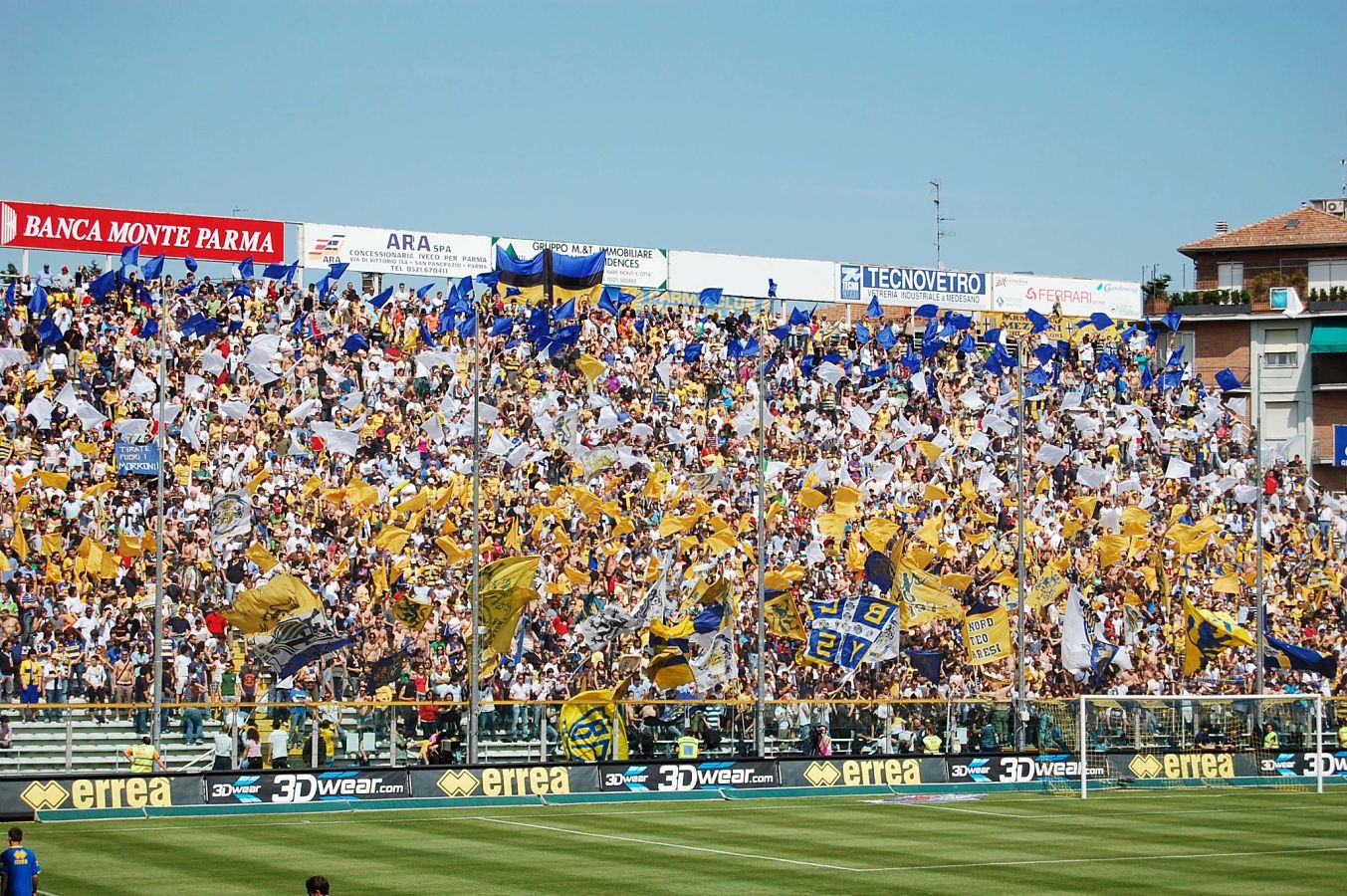Time is running out for Parma. The Serie A side are rumoured to be on the brink of extinction after racking up debts of nearly €200m under former owner Tommaso Ghirardi, and it’s their current predicament which speaks volumes about the worrying trend being set within football.
While Rangers’ liquidation and subsequent demotion have been widely discussed in the last few years, and south of the border Portsmouth have been the subject of numerous winding up orders, Parma’s troubles show that even a prominent side in Italian football are not exempt from the hardships incurred in the uncertain financial situation within the game today.
Traditionally Parma are closely associated with Italian cuisine, but the last two to three decades have seen football become the topic of conversation.
In fact, they even could boast several stars among their ranks in the last twenty-years including Gianfranco Zola, Gianluigi Buffon, Hernan Crespo and former French international Lilian Thuram. It’s easy to forget amidst their current plight that Parma lifted the UEFA Cup just over fifteen years ago, in 1999, with a 3-0 victory against Marseille. Now they’re struggling to fulfil their fixtures.
Parma’s home game with Udinese was postponed on February 22 after the club could not afford to pay the stewards. That’s not all though – it gets worse. The cash strapped ‘I Crociati’ have been unable to pay their players all season, and such is the precariousness of their situation, that the have even had to go without hot water at the club’s training facility.
It’s difficult to fathom how a club has gone from winning a major European competition at the end of the last century, to struggling to stay afloat in 2015. Historically, Parma may not be one of the biggest names in Italian football. In fact they probably wouldn’t even be considered among the top five biggest clubs in Serie A, but that’s beside the point.
What this highlights is that ridiculous decisions at board room level and with ownerships of clubs are beginning to have disastrous implications. Between 2013 and 2014, Parma had 450 player transactions. That is absurd. Co-ownership may not be exactly a new phenomenon within Italian football, but that, alongside careless footballing decisions, has placed Roberto Donadoni’s side on the brink of oblivion.
An explosion in transfer fees, wages, agents fees and TV revenue have arguably made the ‘beautiful game’ unsustainable in the long run. Even the biggest clubs are spending to excess with no care for long term stability. That is particularly concerning.
Parma themselves may have only been promoted to the top tier in Italy in 1990, but they achieved unprecedented success in the 1990s. Italian football has long had a shady reputation for match fixing and other forms of bribery and corruption. One only has to look at Juventus’ relegation to Serie B in 2006 to know that.
However, even amongst all this, it’s an uneasy thought that football continues to spiral down a slippery slope towards the inevitable graveyard that awaits. Rangers and Portsmouth, as alluded to, were lessons, but they are not the only ones.
Rushden & Diamonds and Hereford United are two more clubs who ceased to exist, after dropping out of League Two, but to see a club who once were feared and revered in equal measure fighting for their future is particularly sad to see.
Footballers are often lambasted for being overpaid Prima Donnas, but one must commend the Parma players for showing the professionalism they have in playing despite not being paid all season.
For them, and their supporters, one must hope they can find a buyer and stave off the threat of liquidation. One must look at this as a wakeup call. Modern day football’s attitude in Europe’s top leagues is disconcerting, and if things don’t change, football as we know it will likely continue to dig its own grave.

